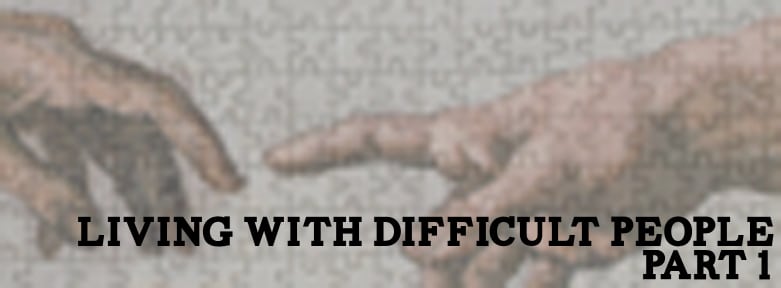“He is so difficult; I don’t know how you live with him.” I overheard two people talking the other day and this was the question the first asked the second one. I waited for a moment to see what the answer would be. I could sense the despair as the second answered; “I don’t know. I will let you know when I do.” I was tempted to interject, but in the end I minded my own business as they carried on their conversation.
How do I live with a difficult person? Many of us have asked this question. We all have had to live with a difficult person at one time or another. The difficult person in your life could be a spouse, a parent, a child, a sibling, a boss, or a co-worker. Difficult people try our patience and can be hard to live with much less to love. To live with a difficult person I need to learn to love that person. The description of love found in 1 Corinthians 13:5 seems necessary. It states that love “is not easily angered, it keeps no record of wrongs.” It is easy to become angry with a difficult person. When someone wrongs us frequently, we tend to keep a record of those wrongs. How then can I learn to love a difficult person?
First of all, we must recognize our own weaknesses and that except for God’s grace in our lives, we would be much worse off than we are. Jesus suggested that we recognize and remove our own defects (the plank in my eye) before focusing on those of another (the speck in the other’s eye) (Matt. 7:3-5). In focusing on our own “wrongs”, we may find ourselves less inclined to keep a record of the wrongs of another.
Secondly, we can often reduce the number of offenses toward us by communicating clearly with that difficult person. Sometimes people are not aware of how they come across and we could do them a favor by letting them know. It can also be helpful to set appropriate boundaries, letting the person know what we are willing to do or not do; to put up with or not put up with. Sometimes living with a difficult person requires being willing to enforcing consequences when necessary. All of this must be done in love, with the other’s best interests in mind. We can end up being offended by others and share some of the responsibility for it because we have not clearly communicated what was expected from them.
Another way to live with a difficult person is to learn how “overlook an offense” (Proverbs 19:11). For a discussion of this see my next blog post in this series.
Dr. Tom Barbian, LPC
Executive Director View More Posts »
More about Dr. Barbian »


